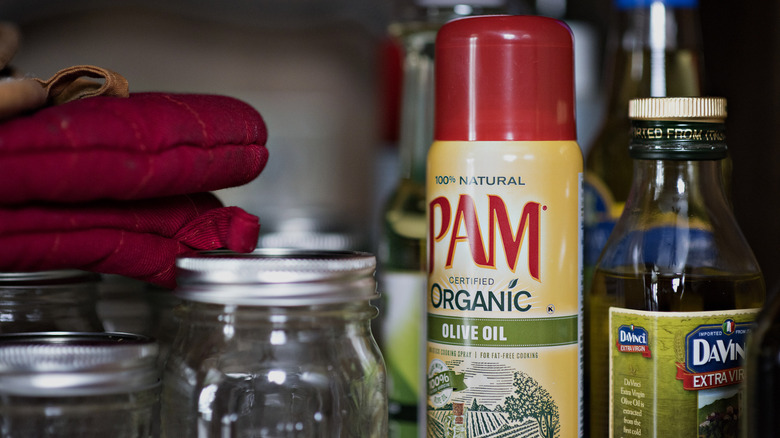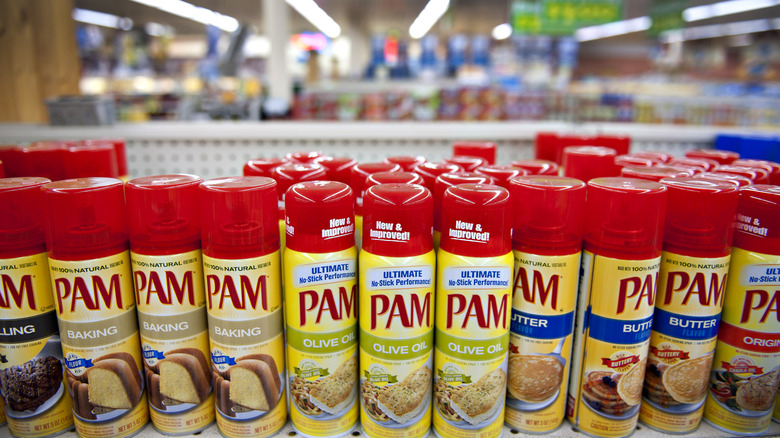An Exploding Can Of Cooking Spray Led To A $7.1 Million Payout
When you're in your kitchen cooking or baking, you're bound to use some supplies or ingredients and place them within reach. Sometimes accidents happen, bottles get knocked over, messes occur, or worse. But what about when something you're not even using inexplicably explodes? That's exactly what happened to Hub City Club head cook Tammy Reese when a can of Swell cooking spray ignited while she was making a pot pie in the kitchen of the Shippensburg, Pennsylvania establishment. The cooking spray wasn't even on the counter but was sitting on a shelf over the stove, and it ended up causing a catastrophic accident. Reese's hands, arms, and face endured second-degree burns. Six years later, A jury has awarded her $7.1 million in her lawsuit against Conagra, the food company that produces Swell, Pam, and other cooking sprays.
Conagra's spokesperson, Dan Hare, told The Washington Post that the company didn't agree with the verdict and may appeal. "Safety of our products and our consumers is always a top priority of Conagra," he said. "We continue to stand by our cooking spray products, which are safe and effective when used correctly, as instructed."
But Reese isn't the only person who has come forward. Meyers & Flowers and Koskoff Koskoff & Bieder, the law firms representing her, have brought 55 more lawsuits against Conagra.
The cans were no longer manufactured after 2019
According to the law firm Koskoff Koskoff & Bieder, which has handled most of the lawsuits, Conagra implemented the bottom vent design in 2011 as a cost-saving measure for cans that were usually larger than 10 ounces. Tammy Reese's lawsuit, as well as the others, have alleged that the spray cans' bottom vents, which were supposed to open and reduce pressure if the can came into contact with high heat or if it buckled, were defective. The vents were weaker and less temperature-resistant than its previous model. But even after the company stopped manufacturing the cooking sprays in 2019 following multiple customer complaints, they were still on store shelves. According to The Washington Post, they were never actually recalled, so those who bought them had no clue about the reported issues with the cans.
Reese's lawyer, J. Craig Smith, got involved with the case in 2019, representing eight victims, including Y'Tesia Taylor, who had to be airlifted to a hospital, and Reveriano Duran, a cook who worked at Houston's Berryhill Baja Grill who was burned while working. He told KHOU that the PAM cooking spray in the kitchen exploded right in front of him. "I felt like I was burning, and I tried to put myself out," Duran told the news station. With so many more lawsuits against Conagra pending, the results in Reese's case may give hope to the other burn victims pursuing compensation.

